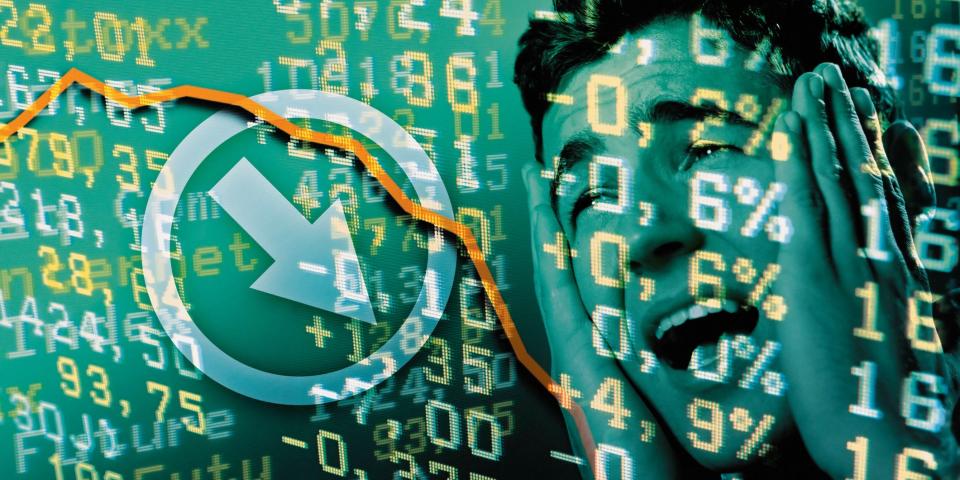Plowing cash into this type of stock market could be a “mistake,” B. Riley Wealth’s Paul Dietrich said.
While inflation has cooled from its highs, not all is well in the “wonderland” economy.
A mild recession could send S&P 500 tumbling by more than a third, Dietrich said in a note.
The stock market is being driven not by fundamentals, but by investor emotion and the fear of missing out — and a recession could send the S&P 500 plunging by as much as 30%.
That’s according to Paul Dietrich, the chief investment strategist of B. Riley Wealth Management, who’s warned before of a recession and a bear market that could strike the economy this year.
Stocks have continued to soar so far in 2024, with the S&P 500 recently surpassing the 5,000 mark for the first time ever. But investing in this kind of stock market is always a “mistake,” Dietrich warned, as it’s mostly being fueled by investor hype.
“So many investors get caught up in the excitement, momentum, and enthusiasm of a stock market that is running like the Kentucky Derby,” Dietrich said in a note last week. “It is that irrational Fear Of Missing Out, or ‘FOMO,’ that fuels this behavior.”
A closer look beneath the surface shows that not all is well in the “wonderland” economy, Dietrich added.
Unemployment remains near a historic low, but has steadily ticked higher over the past year as more firms dole out pink slips. Layoffs and firings rose slightly to 1.6 million in December, according to the Bureau of Labor Statistics.
Consumer spending has remained strong on paper, but there are signs that Americans are simply funding their purchases with credit card debt to fight rising inflation. Household debt now stands at a record $17.5 trillion, according to Federal Reserve data.
“Similarly in 2000 and 2008, a large percentage of consumers hit their credit limits and consumer spending dropped dramatically. This cannot end well,” Dietrich warned.
On Thursday, retail sales logged their steepest drop in almost a year, signaling the resilience of the consumer may finally be waning.
And while inflation has cooled dramatically from its highs, inflation actually hasn’t been an issue in recessions spanning the last 25 years, Dietrich noted. That means the economy — and the stock market — isn’t necessarily in the clear.
“While inflation can exacerbate the pain of a recession, the stock market can still drop by half in a recession — even if there is no inflation,” he warned, noting that the S&P 500 dropped an average 36% at the onset of a recession.
“Even in a mild recession, investors holding the S&P 500 index should expect to lose over a third of their retirement investments in stocks,” he warned.
Other bears on Wall Street have warned of a coming recession that could derail the bull market in stocks. The odds of a recession striking in 2024 are 85%, according to one economic model, the highest odds recorded since the Great Financial Crisis in 2008.
Investors, though, are still feeling pretty optimistic about the market. 42% of investors said they felt bullish about stocks over the next six months, according to the latest AAII Investor Sentiment Survey. Markets, meanwhile, are still expecting ambitious rate cuts from the Fed by the end of the year, with a 68% chance priced in that interest rates will be slashed by at least a full basis-point, according to the CME FedWatch tool.
Read the original article on Business Insider
Credit: Source link




